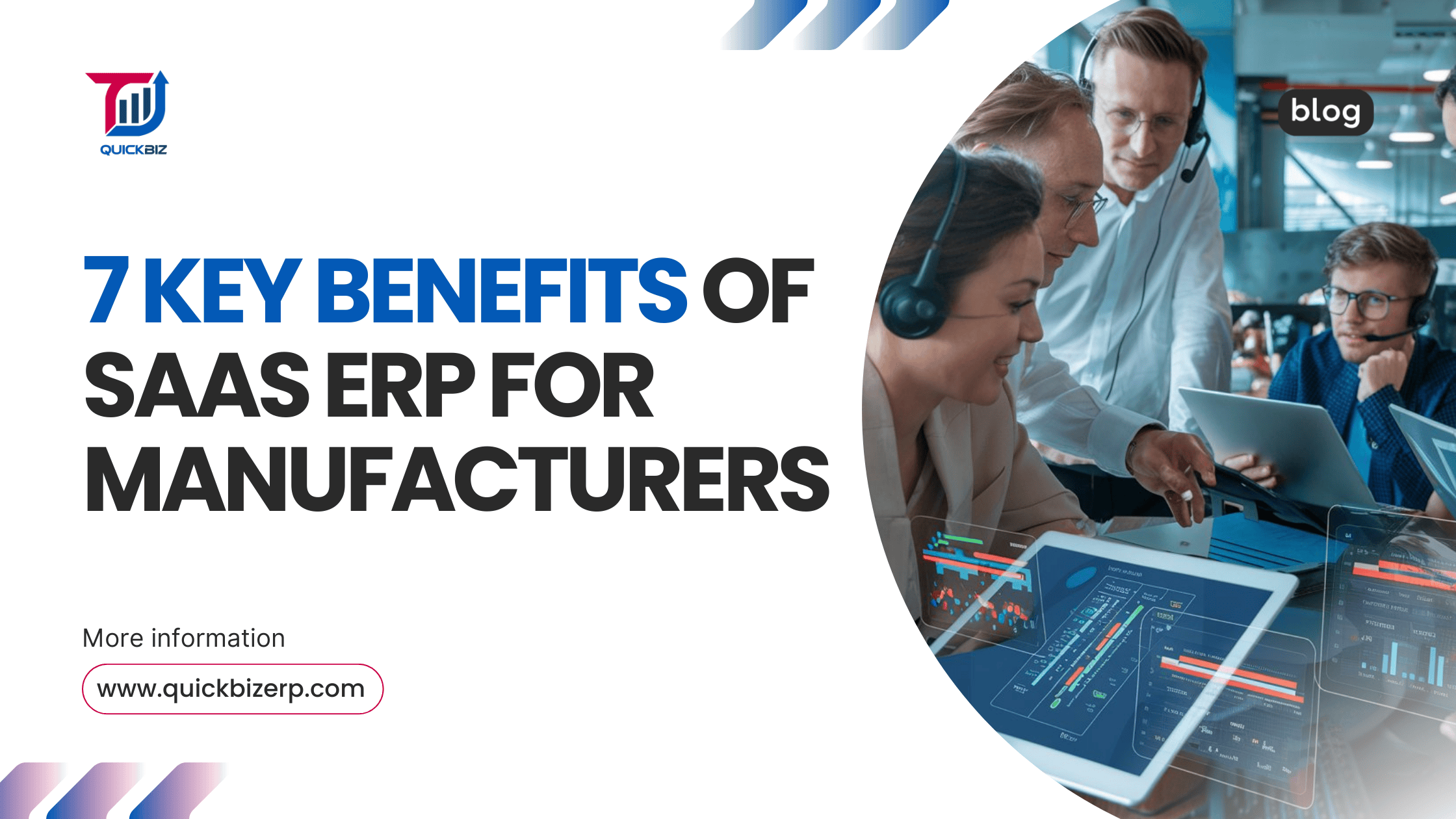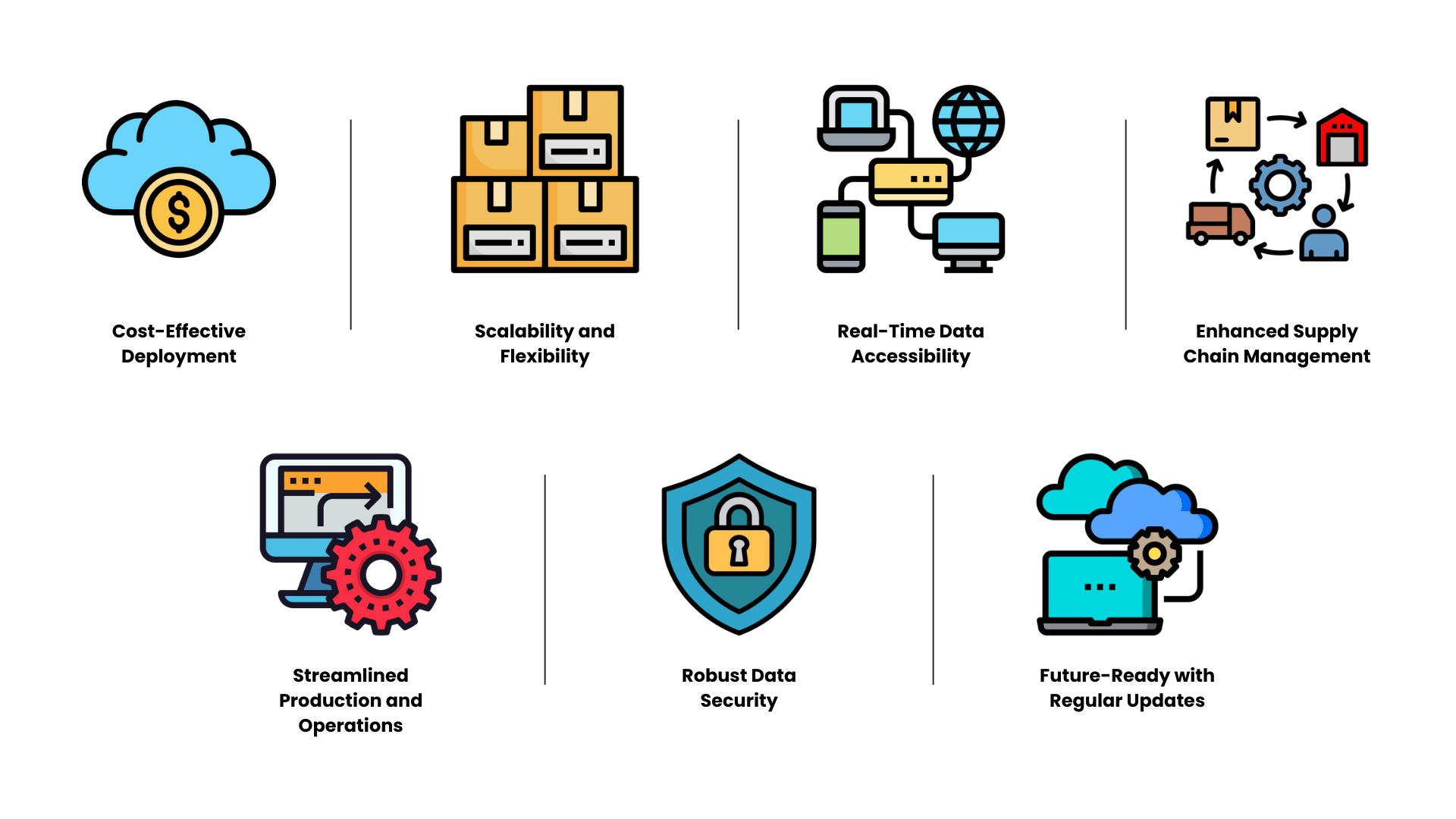7 Key Benefits of SaaS ERP for Manufacturers

Introduction
The manufacturing industry is undergoing a digital transformation, and SaaS ERP (Software as a Service Enterprise Resource Planning) systems are at the forefront of this shift. Unlike traditional on-premises ERP systems, SaaS ERP offers a cloud-based solution that enhances flexibility, cost efficiency, and scalability. For manufacturers aiming to stay competitive in 2024 and beyond, understanding the potential of SaaS ERP is essential. This blog delves into the seven key benefits SaaS ERP brings to the manufacturing sector.

1. Cost-Effective Deployment
Traditional ERP systems often require significant upfront investments in hardware and infrastructure. SaaS ERP eliminates these costs by operating entirely on the cloud. With a pay-as-you-go subscription model, manufacturers can allocate resources efficiently and reduce financial strain, making advanced ERP technology accessible even to small and medium-sized enterprises (SMEs).
2. Scalability and Flexibility
SaaS ERP is inherently designed for growth. As manufacturers expand their operations, they can scale their ERP systems without needing extensive upgrades or replacements. Whether it's accommodating more users, integrating new facilities, or adapting to fluctuating business demands, SaaS ERP offers unmatched flexibility.
3. Real-Time Data Accessibility
In a fast-paced manufacturing environment, access to real-time data is critical. SaaS ERP allows users to access up-to-date information from anywhere with an internet connection. This feature enhances cross-departmental collaboration and supports informed decision-making, especially for businesses operating across multiple locations.
4. Enhanced Supply Chain Management
Managing a complex supply chain becomes seamless with SaaS ERP. Real-time inventory tracking ensures manufacturers can monitor stock levels, avoid overproduction or shortages, and respond swiftly to supply chain disruptions. Efficient supplier communication and streamlined logistics further optimize the production cycle.
5. Streamlined Production and Operations
SaaS ERP automates production workflows, reducing manual intervention and minimizing errors. From scheduling production tasks to monitoring machinery performance, these systems enhance operational efficiency. With faster responses to production challenges, manufacturers can meet deadlines and maintain high-quality standards.
6. Robust Data Security
Data security is a major concern for manufacturers transitioning to digital platforms. SaaS ERP providers prioritize security by implementing industry-standard encryption, regular updates, and automated backups. These measures ensure sensitive business data remains secure while complying with global security standards.
7. Future-Ready with Regular Updates
SaaS ERP keeps manufacturers ahead of the curve by offering regular software updates and enhancements without the need for downtime. Businesses gain access to the latest tools, features, and industry innovations, enabling them to remain competitive and responsive to market changes.
Conclusion
SaaS ERP systems are revolutionizing manufacturing by providing cost-effective, scalable, and efficient solutions tailored to modern challenges. By leveraging real-time data, enhancing supply chain coordination, and ensuring robust security, these systems empower manufacturers to drive growth and maintain operational excellence.
For manufacturers seeking to future-proof their operations, evaluating SaaS ERP solutions is a step toward sustained success in 2024 and beyond.

